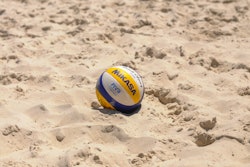Should high school coaches be able to work with their student-athletes on their specific sport throughout the entire year?
It’s a question that we’ve seen raised in several states, and now Delaware is among those considering a proposal that would allow just that. However, as WDEL reports, any changes to current Delaware Interscholastic Athletic Association rules to expand coaches’ access to players will occur over the objections of the state’s athletic trainers.
While the DIAA board of directors is considering expanding the amount of time coaches can spend with their players outside of their season, the Delaware Athletic Trainers’ Association is expressing opposition on the grounds of increased injury risk that often comes with sport specialization.
In explaining the group’s opposition to the proposed rule change, Delaware Athletic Trainers’ Association president Mandy Minutola told WDEL, “The biggest reason is the health and safety of our athletes, which is all that we’re about as athletic trainers and an organization. There’s been a lot of research out that sport specialization — meaning you pick one sport and that’s all you do — has very negative effects on the health of an athlete, mentally, physically and overuse.”
Minutola continued, saying that allowing coaches to train with their student-athletes throughout the year could create an environment where sport specialization is encouraged. Minotula argued that student-athletes may feel pressure to participate in their primary sport year-round, even to the point where multisport athletes quit in order to focus on the sport they’re best at.
That kind of focus could be good in theory — as some parents and coaches who support the rule change argue. However, it can also lead to injuries from overuse.
“Overuse injuries are huge,” Minutola told WDEL. “Doing one sport and focusing on that, and only doing that, and doing the same motions over and over and over and over without a change or rest is where we’re seeing the negative effects on kids.”
The proposal has found some footing among parents who feel that their student-athlete has a better chance at attaining an athletics scholarship if they’re at their absolute peak of their sport. Coaches, meanwhile, support the move for competitive reasons — although there are drawbacks for them as well, as additional practice time would not likely be added to their compensation.





































